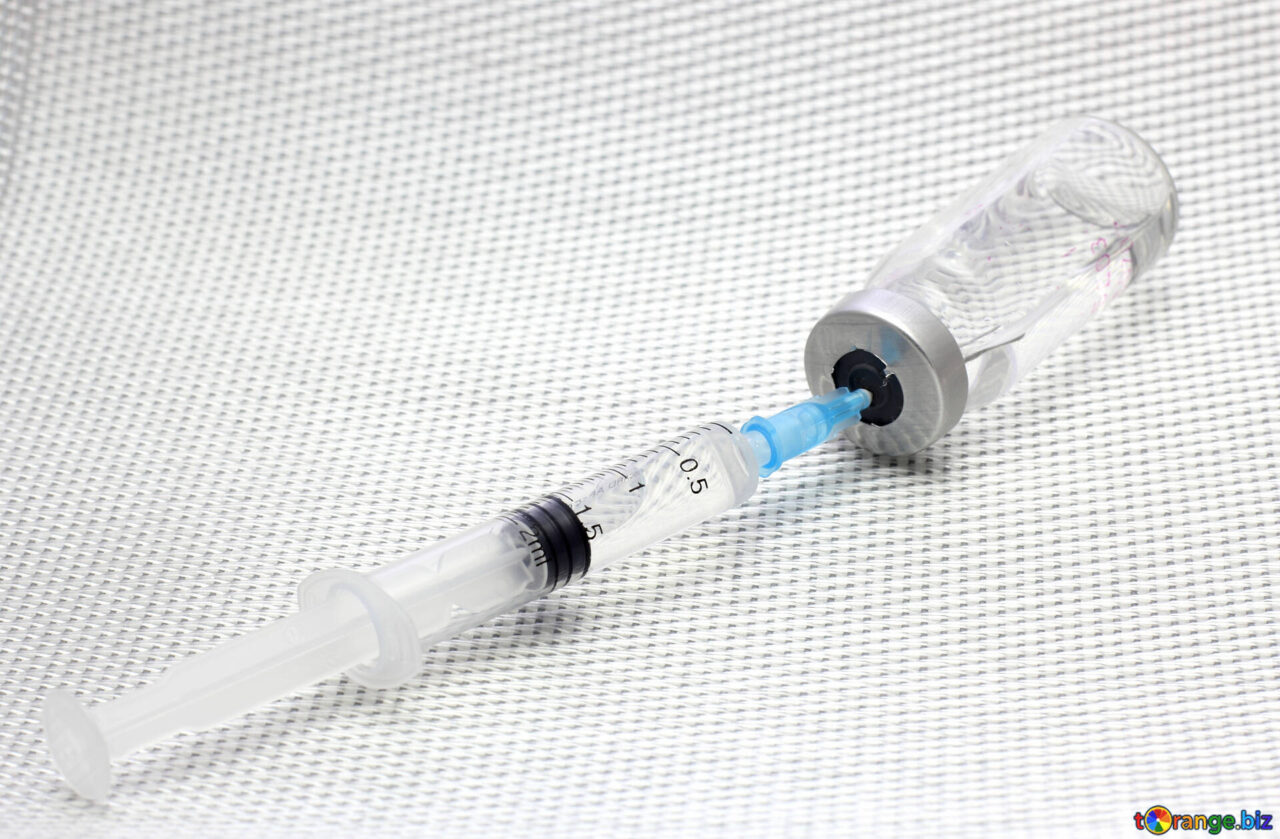AstraZenec plc (LON:AZN) Tezspire (tezepelumab) has been recommended for marketing authorisation in the European Union (EU) as an add-on therapy in patients 12 years and older with severe asthma who are inadequately controlled with high dose inhaled corticosteroids plus another medicinal product for maintenance treatment.
The Committee for Medicinal Products for Human Use (CHMP) of the European Medicines Agency based its positive opinion on results from the PATHFINDER clinical trial programme. The marketing authorisation application included results from the pivotal NAVIGATOR Phase III trial in which Tezspire demonstrated superiority across every primary and key secondary endpoint in patients with severe asthma, compared to placebo, when added to standard therapy.1
Tezspire is the first and only biologic for severe asthma that acts at the top of the inflammatory cascade by blocking thymic stromal lymphopoietin (TSLP), an epithelial cytokine.1-4 Tezspire consistently and significantly reduced asthma exacerbations across Phase II and III clinical trials, which included a broad population of severe asthma patients irrespective of key biomarkers, including blood eosinophil counts, allergic status and fractional exhaled nitric oxide (FeNO).1,2
Dr. Stephanie Korn, Senior Physician in Pneumology and Respiratory Medicine at IKF Pneumologie Mainz and Thoraxklinik Heidelberg, Germany, and investigator for the NAVIGATOR trial said: “Due to the complexity of severe asthma, about 60% of patients have multiple drivers of inflammation. Tezspire is a first-in-class biologic acting at the top of the inflammation cascade and a much-needed potential treatment for patients who continue to struggle with severe, uncontrolled asthma.”
Mene Pangalos, Executive Vice President, BioPharmaceuticals R&D, AstraZeneca, said: “Despite recent advances in treatment, many asthma patients continue to experience debilitating symptoms, an increased risk of hospitalisation, and even death. The only biologic recommended for EU approval in severe asthma patients with no phenotype or biomarker limitation, Tezspire has consistently and significantly reduced exacerbations in clinical trials, and has the potential to transform care for a broad population of severe asthma patients.”
Results from the NAVIGATOR Phase III trial were published in The New England Journal of Medicine in May 2021. There were no clinically meaningful differences in safety results between the Tezspire and placebo groups in the NAVIGATOR trial.1
In clinical trials, the most common adverse events in patients who received Tezspire were pharyngitis, rash, arthralgia and injection site reactions.5
Tezspire was approved as an add-on maintenance treatment of adult and paediatric patients aged 12 years and older with severe asthma in the US in December 2021 and is under regulatory review in Japan and many other countries around the world.6
Notes
Severe asthma
Asthma is a heterogeneous disease affecting approximately 14 million people living with the disease in the European Union and an estimated 339 million people worldwide.7,8 Up to 10% of asthma patients have severe asthma.9,10 Despite the use of inhaled asthma controller medicine, currently available biologic therapies and oral corticosteroids (OCS), many severe asthma patients remain uncontrolled.9-11 Due to the complexity of severe asthma, many patients have unclear or multiple drivers of inflammation and may not qualify for or respond well to a current biologic medicine.10-13
Severe, uncontrolled asthma is debilitating with patients experiencing frequent exacerbations, significant limitations on lung function and a reduced quality of life.9,10,14 Patients with severe asthma are at an increased risk of mortality and compared to patients with persistent asthma have twice the risk of asthma-related hospitalisations.15-17 There is also a significant socio-economic burden, with these patients accounting for approximately 50% of asthma-related costs.18
Clinical trials
In addition to the Phase IIb PATHWAY trial, the PATHFINDER programme included two Phase III trials, NAVIGATOR1,19 and SOURCE.20,21 The programme also includes additional mechanistic and long-term safety trials.22,23
NAVIGATOR is a Phase III, randomised, double-blinded, placebo-controlled trial in adults (18-80 years old) and adolescents (12-17 years old) with severe, uncontrolled asthma, who were receiving standard of care (SoC). SoC was treatment with medium- or high-dose inhaled corticosteroids plus at least one additional controller medication with or without daily OCS treatment. The trial population included approximately equal proportions of patients with high (≥300 cells per microlitre) and low (<300 cells per microlitre) blood eosinophil counts. The trial comprised a five-to-six-week screening period, a 52-week treatment period and a 12-week post-treatment follow-up period. All patients received their prescribed controller medications without change throughout the trial.1
The primary efficacy endpoint was the annualised asthma exacerbation rate (AAER) during the 52-week treatment period. Key secondary endpoints included the effect of Tezspire on lung function, asthma control and health-related quality of life.1
As part of prespecified analyses, the AAER over 52 weeks was also assessed in patients grouped by baseline blood eosinophil count, FeNO level and serum specific immunoglobin E (IgE) status (perennial aeroallergen sensitivity positive or negative).1 These are inflammatory biomarkers used by clinicians to inform treatment options and involve tests analysing a patient’s blood (eosinophils/IgE) and exhaled air (FeNO).
There were no clinically meaningful differences in safety results between the Tezspire and placebo groups in the NAVIGATOR trial.1 The most frequently reported adverse events for Tezspire were nasopharyngitis, upper respiratory tract infection and headache.1
NAVIGATOR is the first Phase III trial to show benefit in severe asthma irrespective of eosinophils by targeting TSLP.1 These results support the FDA Breakthrough Therapy Designation granted to Tezspire in September 2018 for patients with severe asthma, without an eosinophilic phenotype. In July 2021, Tezspire was the first and only biologic to be granted Priority Review in the US for the treatment of asthma by the FDA.
Patients who participated in our Phase III trials were eligible to continue in DESTINATION, a Phase III extension trial assessing long-term safety and efficacy.22
Tezspire
Tezspire (tezepelumab) is being developed by AstraZeneca in collaboration with Amgen as a first-in-class human monoclonal antibody that inhibits the action of TSLP, a key epithelial cytokine that sits at the top of multiple inflammatory cascades and is critical in the initiation and persistence of allergic, eosinophilic and other types of airway inflammation associated with severe asthma, including airway hyperresponsiveness.2,3 TSLP is released in response to multiple triggers associated with asthma exacerbations, including allergens, viruses and other airborne particles.2,3 Expression of TSLP is increased in the airways of patients with asthma and has been correlated with disease severity.2,4 Blocking TSLP may prevent the release of pro-inflammatory cytokines by immune cells, resulting in the prevention of asthma exacerbations and improved asthma control.1,2,4 Tezspire acts at the top of the inflammation cascade and has the potential to help address a broad population of severe asthma patients irrespective of biomarker levels.1,2
Tezspire is approved in the US for the add-on maintenance treatment of adult and paediatric patients aged 12 years and older with severe asthma.6 Tezspire is also in development for other potential indications including chronic obstructive pulmonary disease (COPD), chronic rhinosinusitis with nasal polyps, chronic spontaneous urticaria and eosinophilic esophagitis (EoE). In October 2021, tezepelumab was granted Orphan Drug Designation by the FDA for the treatment of EoE.








































